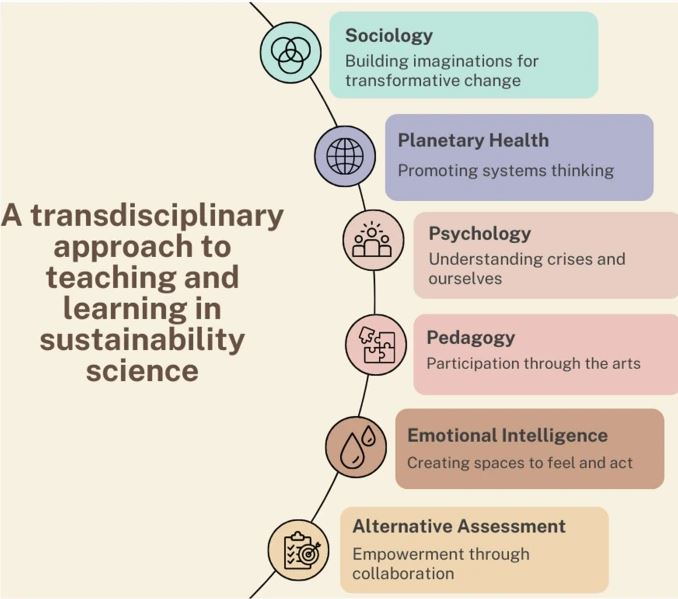
We are in an era of unprecedented ecological and social crises. Human activity has led to the transgression of six of the nine planetary boundaries—including the novel entities boundary, which refers to geological changes that could have large-scale impacts that threaten the integrity of the Earth system processes . This environmental degradation has driven one in five species to extinction.
Further, warming-induced extreme weather events, such as drought, wildfires and flooding, have increased in number and intensity, resulting in widespread suffering and loss of life. Despite political commitments, most governments are failing to take the necessary actions to ensure that the global average temperatures do not surpass 1.5° warming above pre-industrial levels. Alarmingly, global fossil CO2 emissions continued to increase in 2021 and 2022 after dipping by 5.4% in 2020 due to widespread COVID-19 lockdowns. Furthermore, 2015 to 2022 were the eight warmest since the instrumental record began in 1850, despite 3 consecutive years of a cooling La Niña.
The window to control global warming is rapidly closing. On the current trajectory, humankind is set to cause an average temperature rise of 2.8° by the end of the century. In this context, the work of sustainability scientists is becoming increasingly important and challenging. In light of this reality, we argue that we must reconsider the core tenants of transdisciplinary sustainability science. To this end, we propose a model for teaching and learning sustainability as an example of how we might adapt our approach to the pressure of the contemporary context. In a novel way, we model transdisciplinarity. This paper is the product of the Education in a Warming World Research Consortium, supported by Worldwide Universities Network. The consortium comprises university academics with broad expertise in education, sociology, climate change, science communication, health, sustainability, and human behaviour. Our group members share a commitment to transdisciplinary work dedicated to understanding the evolving role of education in this era of rapid climatic change and overlapping socio-ecological crises.
Read the full paper here: Kelly, O., White, P., Butera, F., Illingworth, S., Martens, P., Huynen, M., Bailey, S., Schuitema, G. & Cowman, S. (2023). A transdisciplinary model for teaching and learning for sustainability science in a rapidly warming world. Sustainability Science, https://doi.org/10.1007/s11625-023-01407-z
